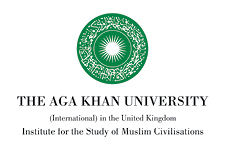About the Project
This project investigates how different religious and ethnic communities in the Abbasid Caliphate (750–1000) were formed, governed, and sustained. Focusing on Iraq and the Levant - where diverse sources and communities coexisted - it brings together studies of Christians, Jews, Muslims, Zoroastrians, and others in a shared political and social context.
We explore questions of governance, identity, and boundary-making - asking how internal community structures related to state systems like taxation, and how social practices compared to religious or legal ideals. The project examines patterns of social contact, marriage, gender politics, community leadership, and lawmaking to understand what helped groups maintain their distinct identities.
In particular, we aim to:
Investigate how patterns of governance within groups related to those of the state - for example, whether the state's ability to raise taxes was connected to each community’s ability to raise revenue.
Differentiate between identitarian discourse (how people ought to behave) and reality (how people actually behaved or classified outsiders).
Compare the histories of different groups to establish common patterns or highlight key differences - such as the role of international connections or geographical spread in shaping group outcomes.
By comparing the experiences of different communities, the project seeks to identify both shared themes and important differences - offering new insights into how diverse groups lived together in one of the most dynamic periods of Islamic history.


